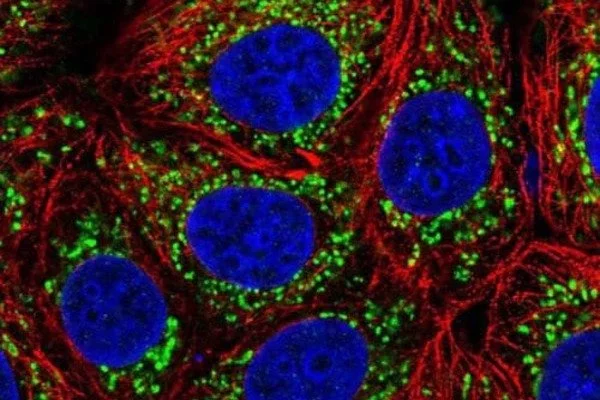Cells involved in the communication between stress responses in the brain and inflammation in the gastrointestinal (GI) tract have been identified in animal models for the first time, according to research published recently in Cell by the Perelman School of Medicine at the University of Pennsylvania.
Glial cells, which support neurons, transmit stress signals from the central nervous system (CNS) to the enteric nervous system (ENS), a semi-autonomous neural system within the gastrointestinal (GI) tract. These psychological stress signals might promote inflammation and aggravate inflammatory bowel disease (IBD) symptoms.
IBD, which refers to two disorders defined by inflammation of the GI tract and can produce symptoms such as recurrent diarrhea, abdominal pain, and bloody stools, affects an estimated 1.6 million Americans today. Prolonged inflammation can potentially cause irreversible damage to the gastrointestinal tract. Anti-inflammatory medications, immune suppressants, dietary modifications, and steroids are currently used as therapies.
Clinicians have long observed that chronic stress can worsen IBD symptoms, but until now, no biological connection has been identified to explain how the digestive system knows when someone is stressed.
Christoph Thaiss
“Clinicians have long observed that chronic stress can worsen IBD symptoms, but until now, no biological connection has been identified to explain how the digestive system knows when someone is stressed,” stated senior author Christoph Thaiss, PhD, an assistant professor of Microbiology.
Researchers discovered that mice with IBD exhibited severe symptoms when stressed, just as humans. The researchers traced the initial stress response signals to the adrenal cortex, which releases glucocorticoids, which are steroid chemicals that stimulate the physiological reactions to stress throughout the body. The researchers discovered that neurons and glia in the ENS responded to chronically high glucocorticoid levels, implying that they are the link between brain stress perception and intestine inflammation.

While glucocorticoids are normally anti-inflammatory in the body, the researchers discovered that when glia in the ENS are exposed to the steroid hormones for an extended length of time, such as during chronic stress, they attract white blood cells to the GI tract, which increases inflammation. The researchers also discovered that when subjected to chronic stress, the neurons in the ENS in the GI tract stop behaving normally, which can result in decreased bowel motions and exacerbation of IBD symptoms.
Thaiss and colleagues used the UK Biobank and a patient cohort from Penn Medicine’s IBD Immunology Initiative to confirm the link between psychological stress and IBD symptoms in humans. They found that the in patients with an IBD diagnosis, the level of reported stress correlated with an increased severity of IBD symptoms.
“This finding highlights the importance of psychological evaluations in patients being treated for IBD, as well as informing treatment protocols,” said Maayan Levy, PhD, an assistant professor of Microbiology and co-senior author of the paper. “One of the most common treatments for IBD flare-ups is steroids, and our research indicates that in patients with IBD who experience chronic stress, the efficiency of this treatment could be impaired.”
Researchers emphasize the need for additional research into the biology of enteric glial cells and the function they play in numerous regulatory systems within the body, such as communication between the neurological and immune systems.





